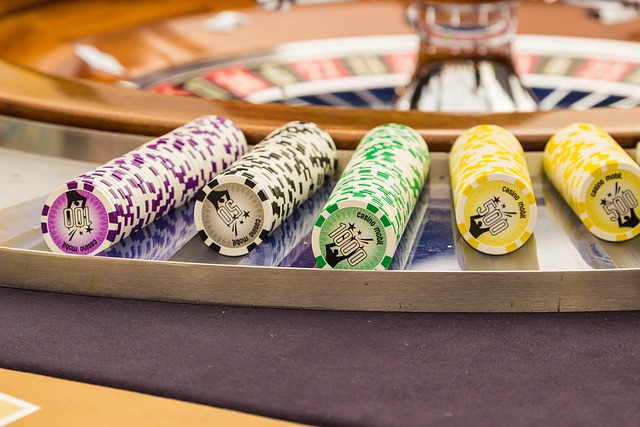As the global online gambling industry continues to grow, so too does the complexity and innovation of its marketing strategies. In 2025, gambling platforms face a unique blend of opportunity and regulation, pushing them to rethink how they connect with users. From personalized AI campaigns to TikTok influencers and blockchain-based loyalty systems, marketing in the gambling world is undergoing a significant transformation. Understanding these trends is crucial for operators, affiliates, and even players looking to stay ahead of the curve.
Shift Toward Responsible Gambling Messaging
With increased scrutiny from regulators, one of the strongest trends in 2025 is a focus on responsible gambling in promotional materials. Marketing campaigns are now required—not just encouraged—to include:
- Self-exclusion and deposit limit tools
- Links to addiction support resources
- Clear, non-deceptive bonus terms
- Messaging that discourages reckless or compulsive betting
Rather than just selling the excitement of winning, brands must now build trust and transparency, often positioning themselves as platforms for “safe entertainment.” This trend isn’t just regulatory—it’s also helping build long-term loyalty among users.
AI-Driven Personalization
Artificial intelligence is playing a larger role than ever in gambling marketing. By analyzing player behavior, AI helps create hyper-personalized experiences, including:
- Targeted promotions based on betting habits
- Custom content feeds and game suggestions
- Smart timing for email, SMS, or in-app notifications
- Bonus offers optimized for individual player profiles
These tailored interactions help operators increase conversion and retention rates, ensuring players receive content and incentives that feel relevant and timely. In 2025, generic marketing is losing ground to AI-powered precision.
Influencer and Streaming Collaborations
Influencer marketing is no longer just a tool for eCommerce. In 2025, casino streamers, betting influencers, and esports personalities are central to many gambling campaigns—especially among younger audiences. Platforms like Twitch, YouTube, and even TikTok (in regions where gambling content is allowed) are used to:
- Promote branded slot tournaments or live events
- Showcase new game releases or bonuses
- Walk viewers through gameplay strategies or experiences
- Create a sense of community around specific gambling brands
Operators now seek long-term partnerships with trusted influencers who align with their values and audience, focusing on authenticity over paid endorsements alone.
Crypto-Friendly Campaigns
As cryptocurrency use grows, many gambling platforms in 2025 focus their marketing on crypto-educated audiences. These campaigns emphasize:
- Instant deposits and withdrawals with Bitcoin, Ethereum, or stablecoins
- Anonymity and low fees
- Compatibility with Web3 wallets and blockchain-based games
- Promotions linked to NFT rewards or token staking
This crypto-specific marketing appeals to a tech-savvy, privacy-conscious user base that values speed, control, and digital ownership.
Gamified Marketing Experiences
Gamification has moved beyond gameplay and is now central to how casinos market themselves. In 2025, many promotions include:
- Missions or challenges to unlock free spins or bonuses
- Leaderboards and tournaments for loyalty rewards
- Collectible digital items or avatars tied to user progress
- Season passes or reward tiers based on activity
These mechanics encourage ongoing engagement, turning marketing into a fun, interactive experience rather than a traditional ad campaign.
Global Localization and Micro-Targeting
Operators expanding across jurisdictions now invest heavily in localized marketing strategies. Rather than a one-size-fits-all approach, campaigns are tailored to:
- Local languages, currencies, and slang
- Region-specific sports and betting preferences
- Cultural attitudes toward gambling
- Local influencers and social media platforms
At the same time, AI tools allow for micro-targeting—segmenting users based on behavior, risk profile, or value to the brand. The result is more relevant, compliance-friendly messaging in each market.
Regulatory-Friendly Affiliate Marketing
Affiliate marketing remains a major growth channel in 2025, but it has evolved to prioritize compliance and transparency. Regulators now expect:
- Full disclosure of affiliate partnerships
- Age verification on referral pages
- Honest bonus descriptions with accurate terms
- Clear jurisdictional targeting to avoid promoting to restricted users
Many platforms now provide affiliates with approved content kits, pre-verified landing pages, and real-time tracking tools to ensure compliant performance across regions.
Voice and Conversational Marketing

With smart speakers, chatbots, and mobile assistants becoming more common, gambling brands are experimenting with voice-enabled marketing. Campaigns may include:
- Alexa or Google Assistant prompts for new promotions
- Voice-activated bonus codes
- AI chatbots that recommend games or walk users through registration
- Personalized offers delivered through messaging apps or chat interfaces
These conversational tools offer high engagement rates and feel more organic than traditional banners or emails.
Data Privacy and Consent-Driven Campaigns
As digital privacy laws become stricter worldwide, operators must take extra care in how they collect, store, and use user data. In 2025, marketing must be:
- GDPR and ePrivacy-compliant, where applicable
- Clear about cookie usage and opt-in processes
- Respectful of opt-outs and data deletion requests
- Built around explicit user consent, especially for SMS or email outreach
Transparent data practices are becoming a brand differentiator, not just a legal requirement.
Final Thoughts
Marketing in the gambling industry is being redefined in 2025 by a mix of technology, regulation, and user expectations. Campaigns must be smarter, more ethical, and more engaging than ever before. With AI personalization, influencer partnerships, crypto integration, and gamified promotions leading the way, operators that adapt to these trends are best positioned to thrive.
Success in this new era of gambling marketing depends on a platform’s ability to balance compliance with creativity, ensuring both excitement and trust for players around the world.

